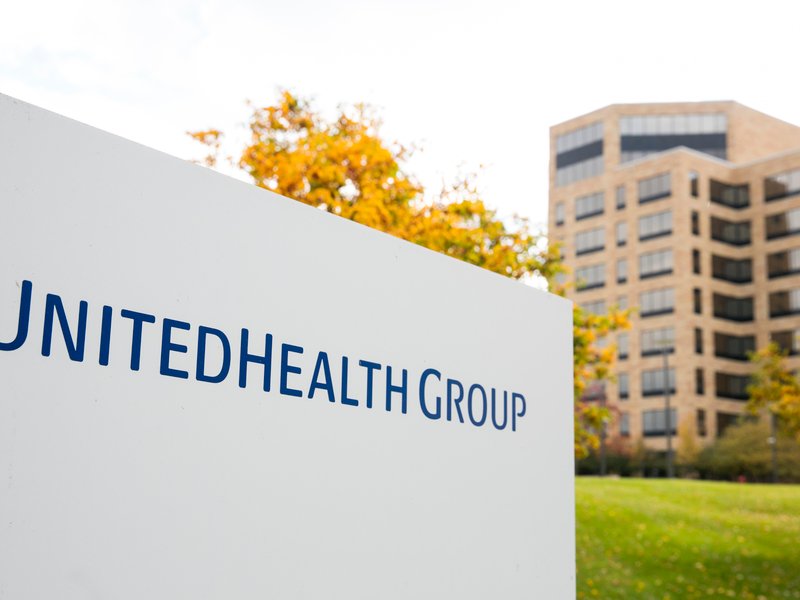 Kris Tripplaar/Sipa USA
Kris Tripplaar/Sipa USA
Less than a month before open enrollment, the Centers for Medicare and Medicaid Services suspended Medicare Advantage plans in six states and Puerto Rico because two of the nation’s largest insurers charged too much in premiums and failed to spend enough on patient care.
Three UnitedHealth Group plans in the U.S. mainland and one Anthem policy in Puerto Rico will be unable to enroll new members in 2022 because they failed to spend 85% of premiums over the last three years on claims, in violation of medical loss ratio rules, regulators notified the company earlier this month.
The CMS sanctions will will disrupt insurers’ finances, enrollment and marketing operations in the lucrative and growing Medicare Advantage space, said Jean Abraham, a professor in the University of Minnesota’s division of health policy and management.
“The Medicare Advantage market is competitive,” Abraham said. “There are lots of choices. Insurers do pay attention to reputation because they have individuals and employers making choices that involve a lot of dollars.”
Thanks to an Affordable Care regulation, the 1,200 people enrolled in the Anthem plan being suspended in Puerto Rico will retain their current benefits through MMM Healthcare plan next year, but Anthem is forbidden to accept new enrollees for this year.
The suspension will not affect any of MMM Healthcare or other Anthem Medicare Advantage plans, a spokesperson wrote in an email. Anthem has 2.7 million Medicare Advantage and Medicare supplement customers.
“We will also work with MMM Healthcare and CMS to address the agency’s concerns,” the spokesperson said. Anthem paid an undisclosed sum to purchase MMM Holdings from InnovaCare in June.
UnitedHealthcare of New Mexico, Arkansas and the Midwest—which comprises Iowa, Kansas, Missouri, and Nebraska—will also not be able to enroll new members in 2022. The 80,000 beneficiaries currently enrolled can maintain their coverage and will receive an enhanced benefits, a spokesperson wrote in an email. The company will also offer alternative plans to members who would like to enroll in a different plan in these markets, the spokesperson said.
UnitedHealth Group has 7.5 million Medicare Advantage enrollees. The company and missed the medical loss ratio benchmark in these markets because so many policyholders are avoiding the medical care during the COVID-19 pandemic, according to UnitedHealth Group.
During the first six months of 2020, physicians reported $9.4 billion less in Medicare claims than expected at the start of that year, and spending down was 19% as seniors deferred care during the COVID-19 pandemic, according to a report the American Medical Association issued in March.
While utilization increased toward the end of 2020, policyholders still visited the doctor less than they would have absent the pandemic, said Glenn Melnick, a health finance professor at the University of Southern California.
More enforcement action may be on the horizon, Melnick said. “If I’m the regulator, I’d look at intent if these guys,” he said. “If they were totally sloppy and didn’t pay attention, I would fine them. But I’m not sure I would pull them out of the market. Pulling these plans out of markets certainly is going to hurt the company and penalizes them, but it also penalizes consumers. Is that the only remedy here?”
UnitedHealth Group and Anthem will need to spend at least 85% of premiums on medical claims in these markets for the next five years. Otherwise, federal regulators will terminate their contracts.
In 2021, the deadline for submitting Medicare Advantage bids to regulators was six months before the calendar year began. Predicting patient and market behavior that far in advance is challenging—even more so now amid a pandemic, Abraham said.
The two for-profit insurance companies will have to invest in messaging to reassure current enrollees that they will still receive coverage and have access to care, Abraham said.
“If the company was building that into expectations and investing in marketing and enrollment and new subscribers, or the plan was growing in the space and then was stopped as a result of the sanctioning, then that’s not good for the insurer,” Abraham said.
Source link : https://www.modernhealthcare.com/insurance/unitedhealth-anthem-medicare-advantage-plans-suspended











